|
|
Post by pjotr on Jun 18, 2019 1:45:20 GMT 1
In the elections of 2005 the Polish government party SLD of prime minister Leszek Miller lost the elections from centre-right party Law and Justice (Prawo i Sprawiedliwość; PiS), with its founders, identical twins Lech and Jarosław Kaczyński, attaining the posts of president (2005) and prime minister (2006), respectively. In 2007 the PiS abandoned its coalition partners—the scandal-plagued Self-Defense Party and the League of Polish Families—and called for an early parliamentary election. In a stunning result, the PiS was defeated by the centre-right Civic Platform party, which under the premiership of Donald Tusk formed a coalition government with the PSL.
After the 2005 elections, Jarosław should have become Prime Minister. However, in order to improve his brother's chances of winning the presidential election (the first round of which was scheduled two weeks after the parliamentary election), PiS formed a minority government headed by Kazimierz Marcinkiewicz as prime minister, an arrangement that eventually turned out to be unworkable. In July 2006, PiS formed a right-wing coalition government with the agrarian populist Self-Defense of the Republic of Poland and nationalist League of Polish Families, headed by Jarosław Kaczyński. Association with these parties, on the margins of Polish politics, severely affected the reputation of PiS. When accusations of corruption and sexual harassment against Andrzej Lepper, the leader of Self Defense, surfaced, PiS chose to end the coalition and called for new elections.
In the 2007 general election, PiS managed to secure 32.1% of votes. Although an improvement over its showing from 2005, the results were nevertheless a defeat for the party, as Civic Platform (PO) gathered 41.5%. The party won 166 out of 460 seats in the Sejm and 39 seats in Poland's Senate.
I found an interesting old e-mail from an Polish Forummember about the situation in Poland in that time.
The Forum member had the opinion that the Kaczynski Twins back then had a lot of air of persons living in self-abnegation. The same opinion he had about Foreign minister Anna Fortyga back then. He thought that is was their way of demonstrating their distance to 'political ways' and stressing their bond to academic life. All the three overlooked the fact that such an attitude is counterproductive to political succes, especially in the world of International Politics, among the smooth and steek politicians flocking in Brussels.
According to the Forum member, Lech Kaczynski, Jarosław Kaczyński and Anna Fortyga were to clumsy and to unceremonious, and in a way to straight-forward too achieve a double goal in politics.
Nicolas Sarkozy obtained what he wanted back then at an EU summit. The free competition and free market clause of the EU-constitution was thrown out of the constitution text, without even notifying the journalists and the public opinion. And that is one of the fundaments of the EU as understood in Poland, and as outlined by the EU forfathers. Sarkozy was still regarded as a Pro-EU politician, but of a different EU. It was Lech Kaczyński who was acting Pro-EU, understood as as a Union of Equal states, and Sarkozy who was against it.
The Kaczynski Twins had a too strong vision and they stuck to it to strongly in a manner resembling idee fixe.
According to my Polish friend in 2007 such kind of politicians either drive their country down fast or upwards. He couldn't tell me at the time with absolute certainty which way Poland would go under their rule back then since he observed both trends at the same time.
|
|
|
|
Post by pjotr on Jun 18, 2019 18:53:32 GMT 1
Some moderate Poles in that time with a centre right liberal, liberal conservative or moderate christian democratic background or political identity prefered a coalition government of Prawo i Sprawiedliwość and Platforma Obywatelska. My Polish Forum Friend from juli 2007 would like to see Platforma Obywatelska by Prawo i Sprawiedliwość side to ensure certainty. He didn't know back then how the future would be. Lech Kaczynski was still alive, the political climate in Poland and the powerballance was different and Platforma Obywatelska didn't had rule for many years, so he didn't knew what we today know.

President Lech Kaczyński and Prime Minister Jarosław Kaczyński
My Polish friend thought that with Platforma Obywatelska in a coalition with PiS would reform finances. He said that in 2007 even PiS started to do so, especially after the Polish Finance minister of the PiS government back then, Zyta Gilowska, came from Platforma Obywatelska. Professor Gilowska was a moderately liberal economist. My Polish friend stated that unfortunately Gilowska had internal opposition inside the Cabinet of Jarosław Kaczyński back then. And that is one of the main points why my Polish Forum friend found the Polish government back then highly unsatisfactory, since the economy should go first in his opinion.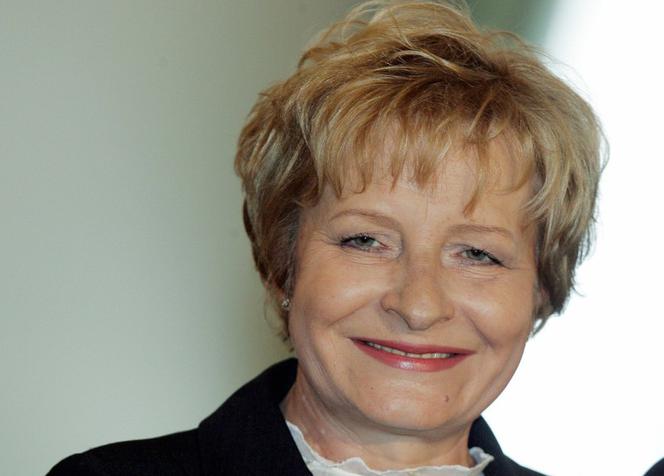 Zyta Janina Gilowska (7 July 1949 – 5 April 2016[1]) was a Polish economist, academic, and politician. Being preoccupied with bringing justice into the Polish political and public life as understood by the majority of the Prawo i Sprawiedliwość members and its leaders was prohibiting all those who in their eyes betrayed Poland in the pre-1989 era from holding any public positions. And diminishing the income of the retired militia and SB (secret police) members. Zyta Janina Gilowska (7 July 1949 – 5 April 2016[1]) was a Polish economist, academic, and politician. Being preoccupied with bringing justice into the Polish political and public life as understood by the majority of the Prawo i Sprawiedliwość members and its leaders was prohibiting all those who in their eyes betrayed Poland in the pre-1989 era from holding any public positions. And diminishing the income of the retired militia and SB (secret police) members.
My Polish friend had the choice between Lech Wałęsa and Tadeusz Mazowiecki, the two great oponents in the first fully free presidential elections in Poland post-1989. Lech Kaczynski was not his cup of tea. Mazowiecki had his vote since he was Unia Demokratyczna voter at the time. Both Wałęsa and Mazowiecki were great figures in Poland, while Wałęsa was surprisingly poor as acting president. Lech Wałęsa Lech Wałęsa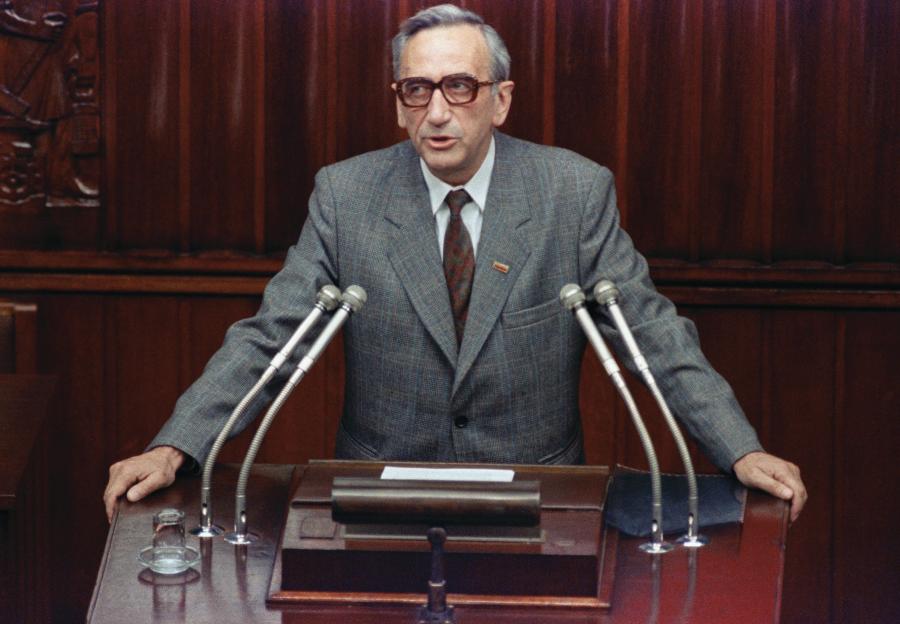 Tadeusz MazowieckiLeszek Miller and Aleksander Kwaśniewski of the Democratic Left Alliance (Polish: Sojusz Lewicy Demokratycznej, SLD) were both former apparatchiks in the eyes of my friend. His personal opinion was that they didn't really change their views and quited to be 'communist'. That is because they never were 'Idealistic communists', they were just carreer makers (opportunist bread makers). These are the kind of people my friend hated. Some see the same with carreer politicians, clientelism, civil servants and loyalists in the Prawo i Sprawiedliwość controled institutions, gleichgeschaltet (forced standardizated) media platforms and state departments. Tadeusz MazowieckiLeszek Miller and Aleksander Kwaśniewski of the Democratic Left Alliance (Polish: Sojusz Lewicy Demokratycznej, SLD) were both former apparatchiks in the eyes of my friend. His personal opinion was that they didn't really change their views and quited to be 'communist'. That is because they never were 'Idealistic communists', they were just carreer makers (opportunist bread makers). These are the kind of people my friend hated. Some see the same with carreer politicians, clientelism, civil servants and loyalists in the Prawo i Sprawiedliwość controled institutions, gleichgeschaltet (forced standardizated) media platforms and state departments.
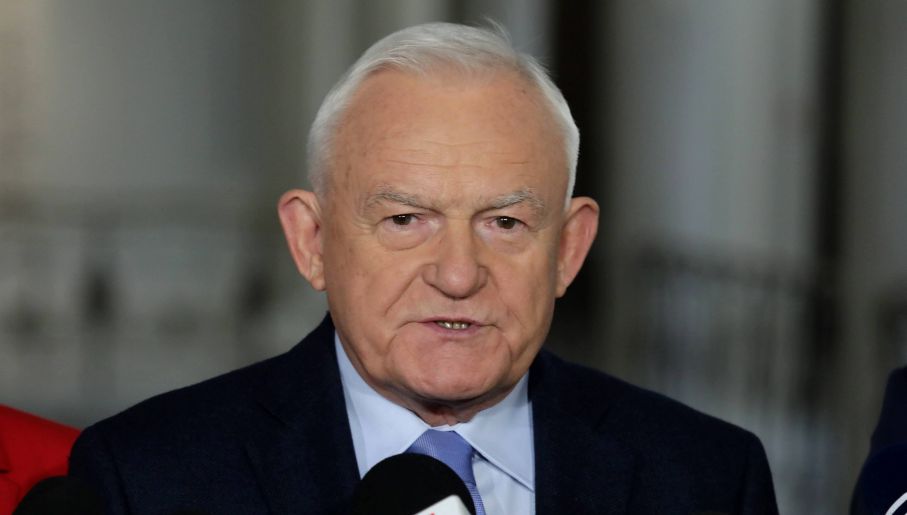
Leszek Miller, Former Polish prime minister of the leftwing Democratic Left Alliance
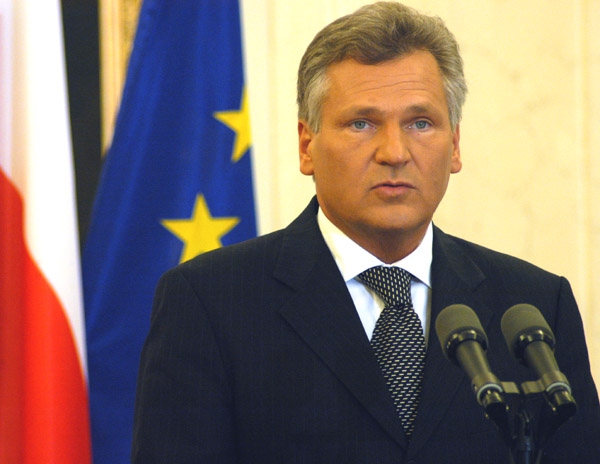
Former Polish president Aleksander Kwaśniewski from the leftwing Democratic Left Alliance. He was president from Poland from 23 December 1995 until 23 December 2005.
My friend said further: "Please note that I have nothing against those who were honestly 'communist' at heart and later saw what 'real communism' was and changed views or even started to fight the regime. There are numerous men and women I greatly appreciate. To name a few you may know: Leszek Kołakowski, Leszek Balcerowicz, Jacek Kuroń, Czesław Miłosz, Wisława Szymborska... They did change their views, because they had their views. Kwaśniewski and Miller didn't have any." Leszek Kołakowski (23 October 1927 – 17 July 2009) was a Polish philosopher and historian of ideas. Leszek Kołakowski (23 October 1927 – 17 July 2009) was a Polish philosopher and historian of ideas.
He is best known for his critical analyses of Marxist thought, especially his three-volume history, Main Currents of Marxism (1976). In his later work, Kolakowski increasingly focused on religious questions. In his 1986 Jefferson Lecture, he asserted that "[w]e learn history not in order to know how to behave or how to succeed, but to know who we are".
Due to his criticism of Marxism and Communism, Kołakowski was effectively exiled from Poland in 1968. He spent most of the remainder of his career at All Souls College, Oxford. Despite being in exile, Kołakowski was a major inspiration for the Solidarity movement that flourished in Poland in the 1980s and helped bring about the collapse of the Soviet Union, leading to his being described as the "awakener of human hopes".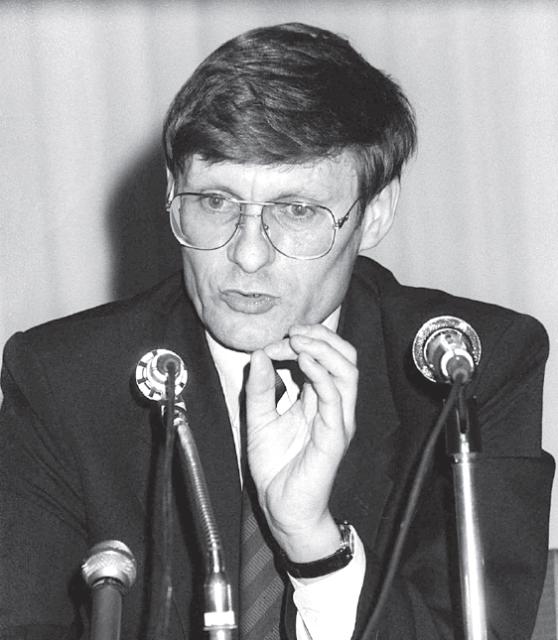 Leszek Henryk Balcerowicz (born January 19, 1947) is a Polish economist who is currently a professor of economics at the Warsaw School of Economics. He served as the chairman of the National Bank of Poland from 2001 to 2007, after serving as Poland's Deputy Prime Minister in Tadeusz Mazowiecki's government. He is known for implementing the controversial Polish economic transformation program in the 1990s commonly referred to as the Balcerowicz Plan. (also refered to as a "Shock Therapy" due to the fact that plan increased unemployment and worsened the financial situation of the poorest members of society) Leszek Henryk Balcerowicz (born January 19, 1947) is a Polish economist who is currently a professor of economics at the Warsaw School of Economics. He served as the chairman of the National Bank of Poland from 2001 to 2007, after serving as Poland's Deputy Prime Minister in Tadeusz Mazowiecki's government. He is known for implementing the controversial Polish economic transformation program in the 1990s commonly referred to as the Balcerowicz Plan. (also refered to as a "Shock Therapy" due to the fact that plan increased unemployment and worsened the financial situation of the poorest members of society)  Jacek Jan Kuroń (3 March 1934 – 17 June 2004) was one of the democratic leaders of opposition in the People's Republic of Poland. He was widely known as the "godfather of the Polish opposition," not unlike Václav Havel in Czechoslovakia. Kuroń was a prominent Polish social and political figure largely responsible for theorizing the movement that broke the back of communism, an ideology he initially tried to reform. Jacek Jan Kuroń (3 March 1934 – 17 June 2004) was one of the democratic leaders of opposition in the People's Republic of Poland. He was widely known as the "godfather of the Polish opposition," not unlike Václav Havel in Czechoslovakia. Kuroń was a prominent Polish social and political figure largely responsible for theorizing the movement that broke the back of communism, an ideology he initially tried to reform.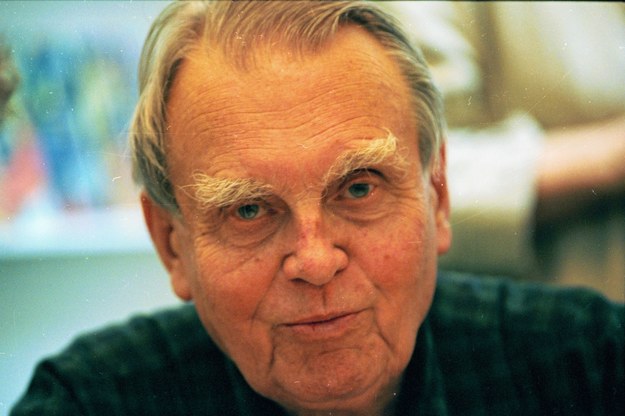 Czesław Miłosz (30 June 1911 – 14 August 2004) was a Polish-American poet, prose writer, translator, and diplomat. Regarded as one of the great poets of the twentieth century, he won the 1980 Nobel Prize in Literature. The Swedish Academy, in its Nobel citation, described Miłosz as a writer who “voices man’s exposed condition in a world of severe conflicts.” Czesław Miłosz (30 June 1911 – 14 August 2004) was a Polish-American poet, prose writer, translator, and diplomat. Regarded as one of the great poets of the twentieth century, he won the 1980 Nobel Prize in Literature. The Swedish Academy, in its Nobel citation, described Miłosz as a writer who “voices man’s exposed condition in a world of severe conflicts.” Maria Wisława Anna Szymborska (2 July 1923 – 1 February 2012) was a Polish poet, essayist, translator and recipient of the 1996 Nobel Prize in Literature. Maria Wisława Anna Szymborska (2 July 1923 – 1 February 2012) was a Polish poet, essayist, translator and recipient of the 1996 Nobel Prize in Literature.
|
|
|
|
Post by pjotr on Jun 18, 2019 19:48:55 GMT 1
My polish friend was an 'idealist' in his younger years when he had self affiliated himself with social democrats. His head was full of ideas of a socialist society built on effective economy. He became disillusioned with the idea when he saw the Swedish, French and Dutch examples in combination with the immigration troubles connected to the 'social democratic' well fare systems. Like other Poles he moved to the center right. Which in Polish practice meant being a supporter of a competitive, free economy with the state possesing as little as can be(only these parts of society which are indispensable for state security) plus liberal vision of an open society, but with strict limits to social care, immigration laws and etc. In 2007 my friend thought that Poland should learn from what happened in the West and better control all these issues as Poland.
Being affiliated to the centre right in 2007 in the Polish reality practically meant being in opposition to the national brand of Endecja (which was the LPR party -Liga Polskich Rodzin-, and the most rightward wing inside Prawo i Sprawiedliwość, the Law and Justice party of Lech Kaczyński and Jarosław Kaczyński back then.) and at the same time in opposition to the extreme liberalism in the meaning of the left of the political spectrum (scene). That was the practice. The party closest to the political vision of my Polish friend in june/july 2007 was the rightwing inside the Platforma Obywatelska (Civic Platform). My Polish friend said to me that the views I expressed in our correspondence would be considered centre right in Poland. I thought that I expressed centre left views, but my intelligent, rational-analytical, intellectual (academic) Polish friend pointed at the truth.
|
|
|
|
Post by pjotr on Jun 18, 2019 20:54:03 GMT 1
Dear friends,
My Polish friend regreted very much that in the last Sejm elections of that time (2007) no PiS-PO coalition was formed. He imagined that such natural 'Post-Solidarność' coalition of PO and PiS would have best suited Poland. In 2007 it seemed clear to him that the PiS was neglecting what should have be done in the first place in his opinion: "To reform the finances, dramatically overblown by the previous SLD-PSL Miller government." This was enough to refute the Cabinet Jarosław Kaczyński in his eyes since instead they are to much preoccupied with 'bringing justice' into Political and Public life. Which was a very good thing to do, but the economy had to go first in his opinion. The effect was that in that time of economical prosperity and fast growth, which was best for reforms, the taxes weren't lowered and the public spending was not cut.
On the other hand my Polish friend found it hard to join the group of critics of the Cabinet Jarosław Kaczyński whom seemed to say that this was the worst government you (Bonobo and other Poles of the Forum) had since 1989. That was the usual stance of my Polish friend, since he usually liked to go against the stream of the so called 'popular knowledge'. In fact he thought that the Kaczyński cabinet still was much better than any government you had before, although he believe that a PiS-PO coalition or the Platforma Obywatelska (PO) alone would have performed it's duties better and external politics would have been done more skillfully, although for sure in the same direction.
To sum up, criticizing the Kaczynski's was in back then. When something was 'in', my Polish friend was usually 'out'. Especially since the 'total critics' of the Terrible Twins as they were called by many Poles, seemed to have fogotten about the bright sides of the Cabinet Jarosław Kaczyński.
My Polish friend stated in June 2007: "We have a president - Lech Kaczyński - who was an academic and is a professor of Law. We have a prime minister who was 'Solidarność' Vice president. They are both from a family of Warsaw intelligentsia, and from an open-minded, non-xenophobic and patriotic one. They are both absolutely honest (two of those rare kind of politicians who have never stole anything  ), which is accepted even by their hard core oponents. Having said so, let me repeat- I would MUCH more prefer having a president Donald Tusk of PO (although not an ideal either) and Jan Rokita of PO as a Prime Minister." ), which is accepted even by their hard core oponents. Having said so, let me repeat- I would MUCH more prefer having a president Donald Tusk of PO (although not an ideal either) and Jan Rokita of PO as a Prime Minister."
/s3/static.nrc.nl/wp-content/uploads/2014/08/tusk.jpg)
Donald Franciszek Tusk (born 22 April 1957) is a Polish politician who has been the President of the European Council since 2014. He served as Prime Minister of Poland from 2007 to 2014 and was a co-founder and chairman of the Civic Platform (Platforma Obywatelska) political party.
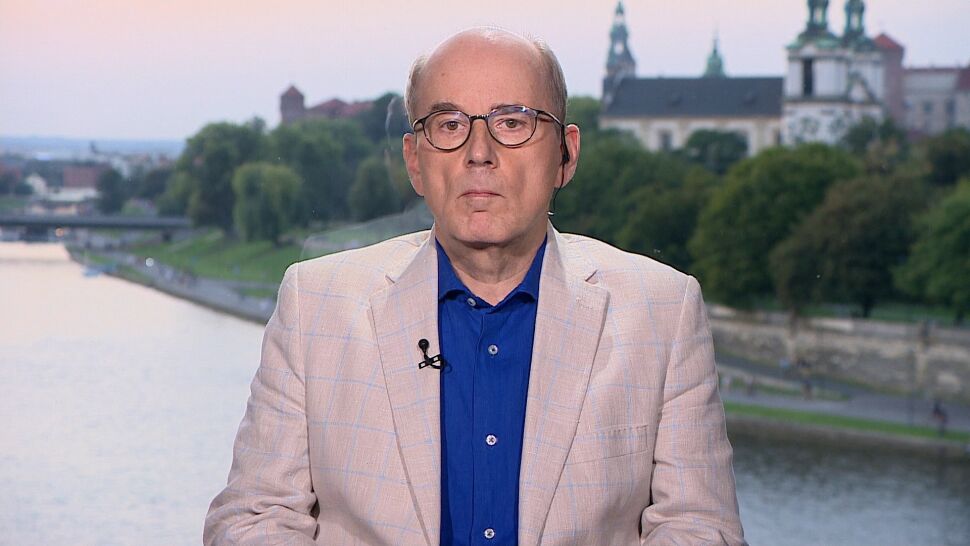
Jan Władysław Rokita (born 18 June 1959 in Kraków) is a Polish liberal politician, a member of the Sejm, the lower chamber of the Polish parliament. He was chairman of the parliamentary club of the Civic Platform party from 2003 to 2005.
My Polish friend had the following opinion about the Polish political spectrum of 2007:
The centre is occupied by Prawo i Sprawiedliwość and Platforma Obywatelska, with their wings stretching both sides. In this meaning that inside the PiS there are plain Socialist and plain Conservatives. And you may be suprised Pieter, by my opinion, so is the case inside the PO, although PO is generally more liberal both economically and culturally. On the right there is LPR (Liga Polskich Rodzin). The party I dislike more than the Postcommunists. They are the real EU-sceptics and nationalists in the worst sense of the word. On the left there is the postcommunist SLD and a post-Solidarność party PD (Partia Demokratyczna). They were a part of the old Unia Demokratyczna (Unia Wolności) just as was PO. In between there are two so called 'peasant' parties -Samoobrona and PSL. Both Populist, with no other idea apart from 'being in power'.
In the opinion of my Polish friend in june/july 2007 nothing endangered Polish democracy, and saying so is against common sense. You'll easily find opposite view, however.
In my friends view Poland was to large to really align with countries of the Visgrad Group (Czech Republic, Hungary and Slovakia). And at the same time in his point of view Poland was to small to align witn the largest countries of the EU (France and German, who are with Poland in the Weimar Triangle). The obvious plan of the Kaczynski Twins is to gain time for Poland becoming a stronger economical and financial player, to the much closer Great Britain, France, Italy and Denmark, in ten years (back then 2017) when the final form of the EU constitution will come to life.
Poland wanted NATO (read "Americans") in Europe in 2007 and France/Germany in my Polish friends opinion wanted NATO out of Europe. In the Middle East Poland had excellent relations with both the Arab countries and Israel. At the same time Poland had no odium of Western Europe which had a 'Pro-Arab' attitude (especially France). My Polish friends personal sympathy in the Israeli-Palestinian conflict was on the Jewish side. Although he sincerely wished peace and prosperity for both opponents.
This was 2007, back to our time in june 2019, 12 years later. I wonder how my Polish friend will be doing today, what his opinion would be today, which political party he would vote for and what his analysis of the Polish economy, society, financial situation, Europe, the EU, the Middle east, the Visegrad group, the Weimar Triangle and Polands position in the EU would be. June 2007 saw a completely different Europe and a completely difgferent Poland than the EU of 2019 and the Poland of 2019.
Cheers,
Pieter
|
|


















 ), which is accepted even by their hard core oponents. Having said so, let me repeat- I would MUCH more prefer having a president Donald Tusk of PO (although not an ideal either) and Jan Rokita of PO as a Prime Minister."
), which is accepted even by their hard core oponents. Having said so, let me repeat- I would MUCH more prefer having a president Donald Tusk of PO (although not an ideal either) and Jan Rokita of PO as a Prime Minister."/s3/static.nrc.nl/wp-content/uploads/2014/08/tusk.jpg)
